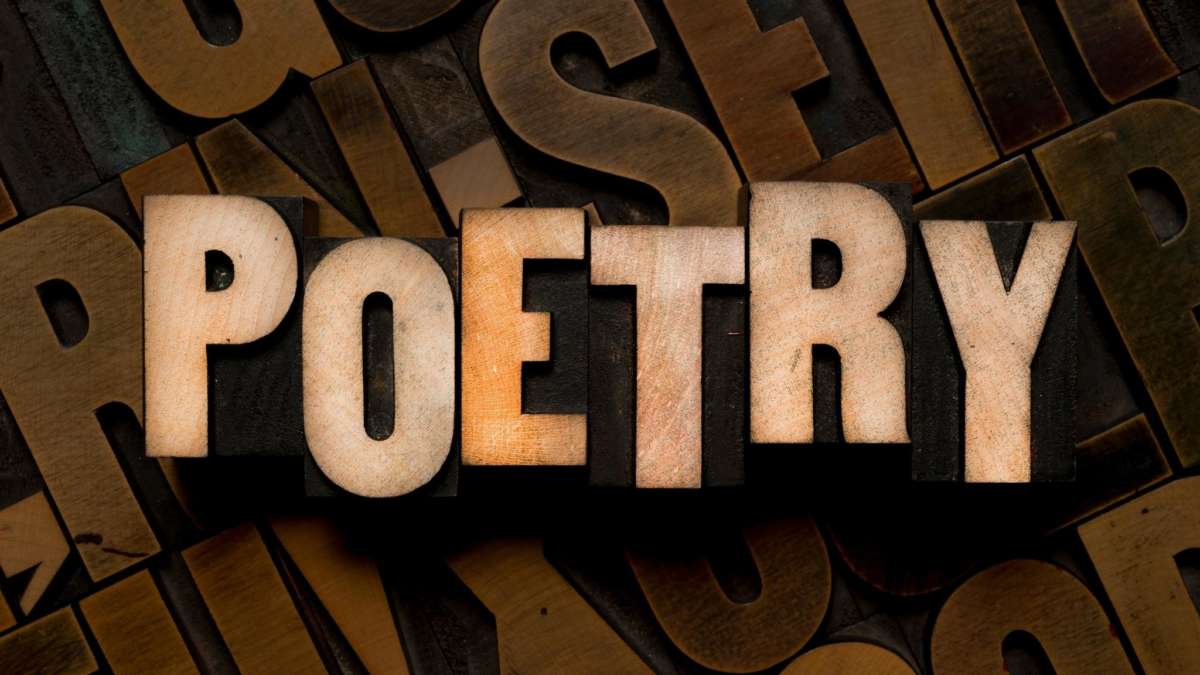Samuel Taylor Coleridge once wrote that prose is “words in their best order,” but poetry is “the best words in the best order.” And while this may be true, good poetry has that extra ineffable something. “If I feel physically as if the top of my head were taken off,” wrote Emily Dickinson, “I know that is poetry.”
Poetry can delve our deepest selves and experiences, explore philosophical and moral ideas, make the familiar unfamiliar and new. It can also expose injustice, change our minds, provoke revolution. Whether subtle as a stream or forceful as a tsunami, the power of language is at the heart of all poetry.
Celebrated annually on March 21, World Poetry Day is a commemorative occasion recognized by UNESCO (the United Nations Educational, Scientific and Cultural Organization) as a day to promote poetry as a cultural and linguistic art form. And that form varies widely across languages and cultures.
Take some time today to appreciate and share the power of poetry. Here are five ideas on how to do that!
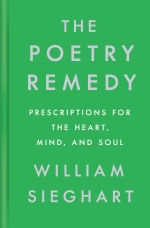 Read a poem. Well, that seems obvious, right? But what’s a good way to mix things up a bit and discover something new? There are some great resources out there: sign up for Poem-a-Day from the American Academy of Poets for a daily dose of verse in your email inbox; get some bibliotherapy by browsing through the pages of The Poetry Remedy: Prescriptions for the Heart, Mind and Soul by William Sieghart; explore poems by topic, form, time period, and more on the Poetry Foundation website; pop into your local library and see what’s on the poetry shelves.
Read a poem. Well, that seems obvious, right? But what’s a good way to mix things up a bit and discover something new? There are some great resources out there: sign up for Poem-a-Day from the American Academy of Poets for a daily dose of verse in your email inbox; get some bibliotherapy by browsing through the pages of The Poetry Remedy: Prescriptions for the Heart, Mind and Soul by William Sieghart; explore poems by topic, form, time period, and more on the Poetry Foundation website; pop into your local library and see what’s on the poetry shelves.
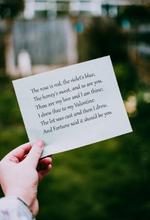 Share a poem or your favorite lines. Is there a poem that really “speaks” to you, one that moves you or leaves you with a sense of awe? Is there a poem with a powerful message that you think will resonate with others? Today’s the day to share those poems with others! Whether you share them on social media, post them on community bulletin boards, send them off to your friends inside blank greeting cards, or tuck them into your kids’ lunchboxes, get creative with who you share them with and how. Poetry is for everyone, everywhere!
Share a poem or your favorite lines. Is there a poem that really “speaks” to you, one that moves you or leaves you with a sense of awe? Is there a poem with a powerful message that you think will resonate with others? Today’s the day to share those poems with others! Whether you share them on social media, post them on community bulletin boards, send them off to your friends inside blank greeting cards, or tuck them into your kids’ lunchboxes, get creative with who you share them with and how. Poetry is for everyone, everywhere!
 Watch a poetry performance. If you think of poetry as words on paper arranged in lines and stanzas, you aren’t taking into account the many ways poetry comes alive off the page. There’s nothing like hearing poets read their work aloud. Their inflections, gestures and pauses deepen the musicality and meaning of their poems in ways that cannot be recreated on the page. In fact, some poetry is specifically written to be spoken aloud. Rooted in ancient oral traditions, spoken word poetry encompasses everything from jazz poetry to hip-hop, often blending in aspects of performance art. Its focus is often on the way that a language is actually spoken, particularly within ethnic and regional communities, making it fascinating to study from a linguistic and cultural standpoint. For some great examples of modern spoken word poetry, check out the YouTube channel for Poetry Slam Inc or Button Poetry.
Watch a poetry performance. If you think of poetry as words on paper arranged in lines and stanzas, you aren’t taking into account the many ways poetry comes alive off the page. There’s nothing like hearing poets read their work aloud. Their inflections, gestures and pauses deepen the musicality and meaning of their poems in ways that cannot be recreated on the page. In fact, some poetry is specifically written to be spoken aloud. Rooted in ancient oral traditions, spoken word poetry encompasses everything from jazz poetry to hip-hop, often blending in aspects of performance art. Its focus is often on the way that a language is actually spoken, particularly within ethnic and regional communities, making it fascinating to study from a linguistic and cultural standpoint. For some great examples of modern spoken word poetry, check out the YouTube channel for Poetry Slam Inc or Button Poetry.
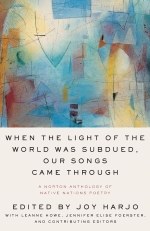 Get acquainted with this year’s theme. For 2022, UNESCO is focusing on the poetry of indigenous peoples. In a commemorative message, Director-General of UNESCO Audrey Azoulay writes that indigenous “languages and cultures are increasingly under threat … For these communities, poetry plays an important role in maintaining linguistic and cultural diversity and preserving memory.” In that spirit, why not explore Native American poetry? A great place to start is this collection of poets compiled by the Poetry Foundation. There’s also a fantastic anthology edited by Joy Harjo entitled When the Light of the World Was Subdued, Our Songs Came Through.
Get acquainted with this year’s theme. For 2022, UNESCO is focusing on the poetry of indigenous peoples. In a commemorative message, Director-General of UNESCO Audrey Azoulay writes that indigenous “languages and cultures are increasingly under threat … For these communities, poetry plays an important role in maintaining linguistic and cultural diversity and preserving memory.” In that spirit, why not explore Native American poetry? A great place to start is this collection of poets compiled by the Poetry Foundation. There’s also a fantastic anthology edited by Joy Harjo entitled When the Light of the World Was Subdued, Our Songs Came Through.
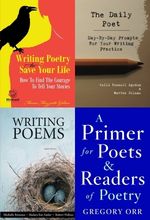 Write a poem. Okay, you probably knew this one was coming. Don’t be intimidated. If you need courage, read Writing Poetry to Save Your Life by Maria Mazziotti Gillan. If you need inspiration, try The Daily Poet: Day-By-Day Prompts For Your Writing Practice by Kelli Russell Agodon and Martha Silano. If you are looking for an all-around classic guide to writing poetry you can’t go wrong with Writing Poems by Michelle Boisseau, Hadara Bar-Nadav and Robert Wallace, or perhaps A Primer for Poets and Readers of Poetry by Gregory Orr. But you don’t need any of these books to start writing poetry, really. A pen and paper, a word processing app. Your experiences, your observations, your imagination. The big questions, the tiniest of details. Words next to words. The best words in the best order.
Write a poem. Okay, you probably knew this one was coming. Don’t be intimidated. If you need courage, read Writing Poetry to Save Your Life by Maria Mazziotti Gillan. If you need inspiration, try The Daily Poet: Day-By-Day Prompts For Your Writing Practice by Kelli Russell Agodon and Martha Silano. If you are looking for an all-around classic guide to writing poetry you can’t go wrong with Writing Poems by Michelle Boisseau, Hadara Bar-Nadav and Robert Wallace, or perhaps A Primer for Poets and Readers of Poetry by Gregory Orr. But you don’t need any of these books to start writing poetry, really. A pen and paper, a word processing app. Your experiences, your observations, your imagination. The big questions, the tiniest of details. Words next to words. The best words in the best order.
RELATED POSTS
A Brief Primer For Black Poetry Day
Sharing Some Favorite Poems on World Poetry Day
Celebrating National Poetry Month With Staff Picks
